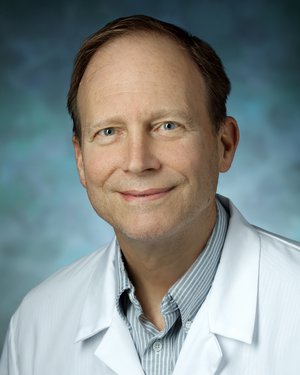Background
Dr. Edward W. Gabrielson is a Professor of Pathology and Oncology at the Johns Hopkins University School of Medicine and Professor of Environmental Health Engineering at the Johns Hopkins Bloomberg School of Public Health. He specializes in molecular pathology, with particular emphasis on the pathology of breast, esophageal and lung cancers. Dr. Gabrielson is a member of the Johns Hopkins Kimmel Cancer Center.
He received his M.D. from Northwestern University, completed a residency in pathology at the University of Colorado School of Medicine, followed by a fellowship in pathology at the National Institutes of Health.
Dr. Gabrielson has authored or co-authored approximately 200 peer-reviewed publications, and is board certified in Anatomic and Clinical Pathology.
